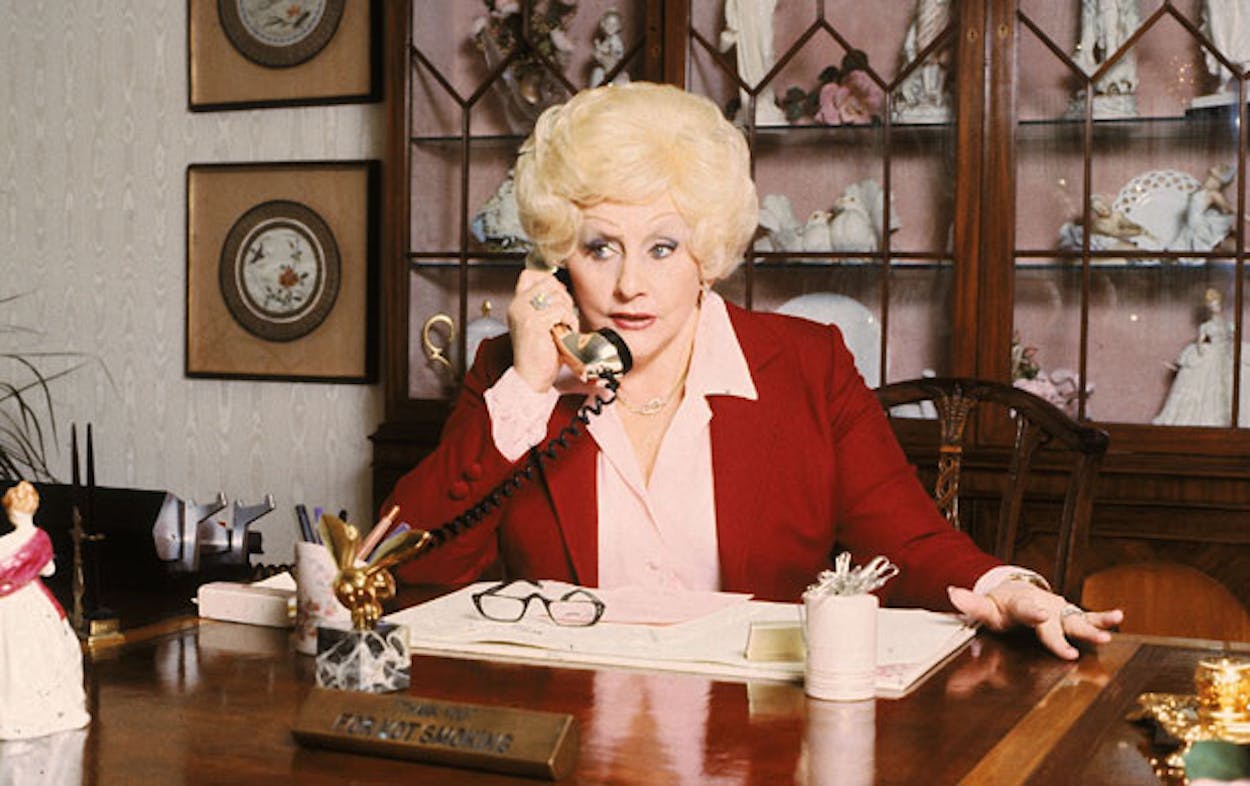A reporter went inside the pink heart of Mary Kay, dropping more than $1,800 on cosmetics to become a decorated beauty consultant with the company to see what makes it tick.
In her piece for Harper‘s, Virginia Sole-Smith concludes that the Dallas-based direct-selling company is merely a “pink pyramid scheme” for most involved:
A business in which only a select few earn real money while everyone else pays to play sounds a lot like a pyramid scheme. The Federal Trade Commission distinguishes between recruiting salespeople to sell a product, which is perfectly legal, and making money exclusively through ‘fees for participation,’ which isn’t. What constitutes a fee is, of course, vague, but the FTC has charged some multilevel-marketing companies with employing pyramid schemes. In those cases, the majority of sales occurred between company and salespeople; the retail products were essentially decoys. The FTC has never taken action against Mary Kay, and an agency spokesperson told me that he was ‘unable to confirm or deny’ whether the company had ever been investigated.
Sole-Smith expounded on that thought in an interview with Marketplace’s Tess Vigeland last week: “Really, the only way to make money is by recruiting other people to sell products as part of their sales unit, which they then get paid a commission off of every time those women place a wholesale order. And that does look like a pyramid scheme,” she said.
For the piece, Sole-Smith attended a number of Mary Kay parties and ultimately signed up to move product. While the initial fee to become a consultant is only $100, she was pushed to stock up on enough inventory (think $1,800 worth of mineral eyeliner, foundation, and moisturizer) to climb the ladder and become a so-called “Star Consultant.”
In her reporting, Sole-Smith met some women who were drawn in by the allure of “the income potential of direct sales” and a flexible schedule, but who were ultimately disappointed by their earnings. (While Mary Kay reps like to focus on these benefits, it turns out that only some 300 Mary Kay ladies draw in six-figure salaries.)
One woman, who had worked her way up the ranks to sales director, couldn’t keep pace with the $4,000 in sales a month she needed to keep that title. She ended up with “over $15,000 in credit card debt and a basement full of unsold products inching closer to their expiration dates” and a failed marriage (in his divorce filing, her husband said that they had “different attitudes towards money.”) Another woman also had trouble booking the required number of skincare classes and opined that being a Mary Kay lady is “a little like being in a cult.”
Sole-Smith traces the cosmetics empire from its humble beginnings in 1963, when Mary Kay Ash—disillusioned when a man she trained was promoted ahead of her with World Gift Corporation, where she worked in direct sales—spent $5,000 to found the company. A year later, Ash hosted her first of many awards nights, catering it herself with homemade “chicken, jalapeno dressing, and Jell-O salad.” Ash wrote that she founded the company with “offering women opportunities that didn’t exist anywhere else” in mind.
But Ash was only concerned with female empowerment up to a point. Throughout the company’s history, the “tension between empowering women and ensuring they retain their traditional roles” has loomed large. As Sole-Smith wrote:
Ash’s talk of sisterhood, however, was no byword for feminism. Her real targets were the bored housewives turned off by The Feminine Mystique (published the year Beauty by Mary Kay launched) who wanted to earn pocket money without threatening their breadwinner husbands. God first, family second, career third, was Ash’s mantra. ‘Although my late husband, Mel, was very supportive of my career, he let me know that beginning at seven each evening, I was to be Mrs. Mel Ash—period. Starting then, it was his time.’ Ash wrote of her third husband in her self-help book You Can Have It All.
At points, the reverence in the company for Ash, who died in 2001, starts to sound something like a cult of personality in some far flung former Soviet state. The consultant who signed Sole-Smith up had the following to say about the unit’s national sales director: “Barbara has been with the company since 1972—she was trained by Mary Kay Ash herself,” Antonella said. “So our unit has strong bloodlines. We are direct descendants of our great founder.”
To get yourself in the mood to read the piece, Jezebel‘s Katie J.M. Baker recommended “cue[ing] up the Twilight Zone theme and slather on some rouge while you read the story for extra effect.” And for more background on Ash, revisit Skip Hollandsworth’s profile of the cosmetics titan in the November 1995 issue of TEXAS MONTHLY.







